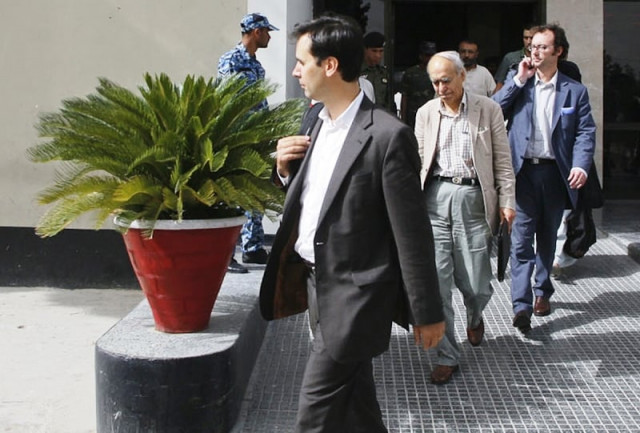Enforced disappearances: 40% of K-P’s missing men back home, UN panel told
Official says the commission is satisfied with efforts of provincial government.

Authorities in Khyber-Pakhtunkhwa (K-P) on Monday told a UN delegation currently in the country to examine the issue of enforced disappearances that 40% of missing persons have already returned home.
Four members of the United Nations Working Group on Enforced or Involuntary Disappearances arrived in Peshawar and held an hour-long meeting with two officials of the Home and Tribal Affairs Department including Home Secretary Muhammad Azam Khan.
The UN delegation presented a list of around 100 to 120 missing persons, which also included the names of 25 to 30 foreigners. They were, however, informed by the K-P administrators that 40% of those mentioned in the list have already returned home, said an official source requesting anonymity.
“They asked the home secretary 15 to 20 questions about the proceedings of cases pertaining to missing persons in courts as well as police stations. They also inquired about bodies found in gunny bags, and later appeared to be satisfied with the registration of FIRs and follow-up efforts of the provincial government.”
The UN team has arrived in the provincial capital to look into allegations of security agencies picking men up, but the official said they were assured the missing people were either victims of personal feuds or those whose relatives failed to pay the ransom demanded for their release.
“The team also asked authorities if there had been any complaints of missing women, but the officials said they haven’t received any such reports,” added the official.
“The UN panel was told that K-P administrators are complying with orders issued by the Supreme Court, Peshawar High Court and the Commission of Missing Persons headed by Justice Javed Iqbal.”
While Peshawar High Court Chief Justice of Dost Muhammad Khan has refused to meet the commission, the UN panel was told a less rosy tale during its meetings with locals, relatives of missing persons, human rights commissions and journalists at a local hotel.
Relatives complained of problems in registering FIRs and maintained the government was not taking adequate steps for the safe recovery of their loved ones.
Meanwhile, many locals from Balochistan said they were pinning their hopes on the UN commission to solve the issue of enforced disappearances, adding they had little faith in the government.
“If the UN has taken pains to send a team to Pakistan, it means the world now knows what’s going on,” a former student activist Asif Baloch told Reuters.
Meanwhile, voice for Baloch Missing Persons Chairman Nasrullah Baloch has also submitted a letter to the Supreme Court and lodged a complaint with the International Human Rights Organisation saying the state is to be held responsible if anything happens to him.
(WITH ADDITIONAL INPUT FROM REUTERS AND OUR CORRESPONDENT IN QUETTA)
Published in The Express Tribune, September 18th, 2012.













COMMENTS
Comments are moderated and generally will be posted if they are on-topic and not abusive.
For more information, please see our Comments FAQ